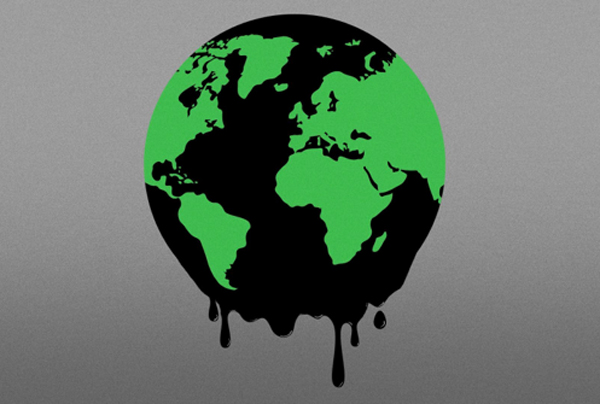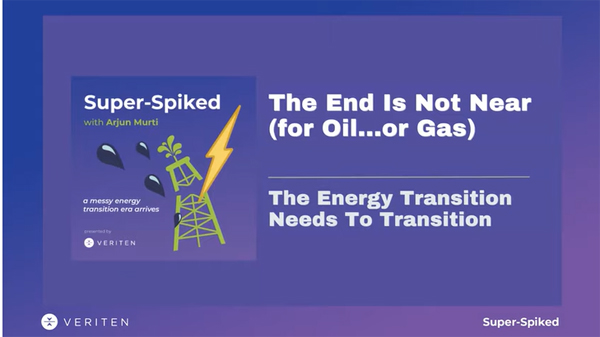
Ben Geman and Andrew Freedman, Axios
Quick take: Who knows what the next five years hold, let alone the next 25.
A few stats from prominent analyst Arjun Murti offer a sobering case for why a global peak in oil demand may be very far away.
The big picture: In a compelling analysis, he notes the 1 billion who live in the U.S., Canada, western Europe, Japan, Australia and New Zealand averaged 13 barrels per capita annually last year.
- The rest of the globe’s roughly 7 billion people? A mere three barrels, Murti’s writes in the latest of several recent posts on the topic.
- “Even as attempts are made to reduce rich-country oil demand, the upside potential in the developing world we believe is magnitudes greater,” writes Murti, a Goldman Sachs veteran who’s now a partner at Veriten LLC.
- In a video, he argues demand increases are inevitable for at least the next decade, “and frankly I think it is going to be much longer than that.” Murti likes renewables and electric vehicles but describes himself as a realist. “I am not advocating for fossil fuels. What I am doing is applying analysis.”

State of play: Murtinotes electric vehicles, renewables and other non-fossil sources will meet some of this growing demand; so per-capita oil use everywhere certainly won’t grow enough to match today’s rich consuming nations.
- Still, oil will play a major role.
- Murti calls this a matter of economic justice, as people seek to escape poverty and have higher living standards.
Why it matters: The timing of when oil demand peaks — and, crucially, the slope of the decline — has big repercussions for global carbon dioxide emissions, and beyond.
Threat level: Murti, whose other affiliations include Columbia University’s energy think tank and ConocoPhillips’ board of directors, has been writing on this a lot lately. He argues the discussion of hypothetical demand horizons has real stakes, because unrealistic forecasts can distort policy and investment.
- “There actually isn’t an end in sight…and we need to recognize that and we need to incorporate that into how we view the world.”
The other side: There’s no consensus, but some analysts call the late 2020s or early 2030s very possible.
- For instance, the International Energy Agency recently projected demand growth will slow “markedly” in the next few years, with a peak “in sight before the end of this decade.”
Of note: Think tank Resources For the Future does yeoman’s work in comparing what various analysts project.
Quick take: Who knows what the next five years hold, let alone the next 25.
- Recall the minority view during the early COVID days that demand would never regain pre-crisis levels.
The bottom line: “…The idea that crude oil will not play a role [in growth] and would globally decline is pure fantasy. Looking at the numbers, it’s not a close call,” Murti adds.
axios.com 08 24 2023











